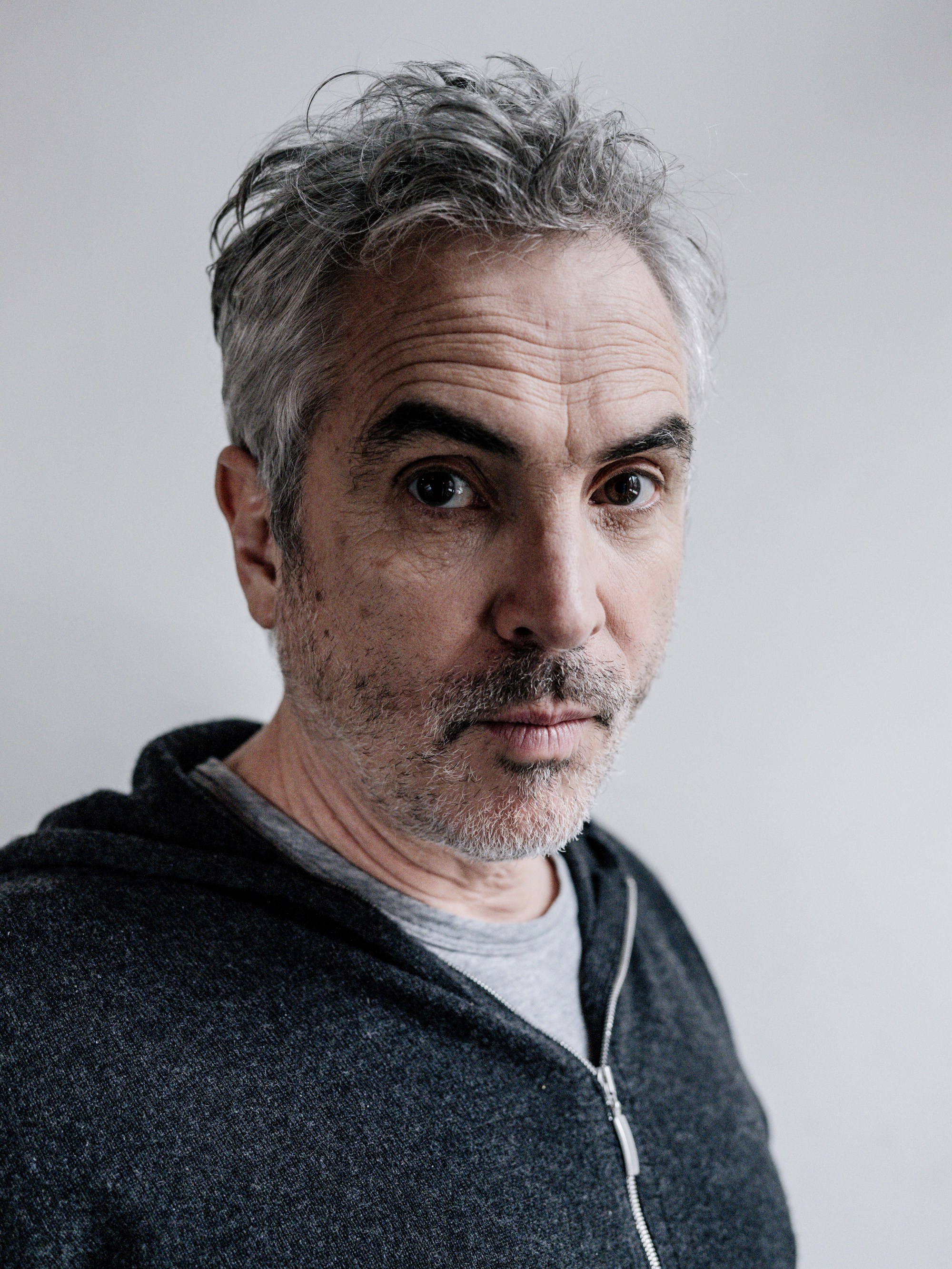
- Interviews
HFPA in Conversation: Alfonso Cuarón on His Memories and Visions
Alfonso Cuarón returns to his childhood memories when talking about his newest film Roma, nominated for the Golden Globes in three categories: Best Director, Best Screenplay and Best Foreign Language Film. In 2014 he won a Golden Globe for Best Directing with Gravity.
He was barely 13 years old when his mother gave him a Minolta Super 8 film camera so he could follow his aspirations as a filmmaker. “In those times film was pricey in Mexico, at least for my family. So it was limited the kind of shooting I could do. At the beginning it was mostly family events like the football game of my siblings,” he tells to HFPA’s Vera Anderson at Netflix’s office in Los Angeles.
This didn’t slow him down, instead, he went around filming his own creations with an empty camera simply imagining how he would then edit the whole imaginary movie. He would take the camera everywhere. “I was with that camera all the time even without the film. When we would be going someplace, I was in the car and I was all the time shooting. But that’s the thing, it’s not only that I had my eye on the finder, I would actually be pushing the button and be shooting even without the film.”
When he was a kid he would play war at make-to-believe war movies with his friends.“At that age, I was very confused about what is what in a film. I didn’t know what the director was. Somehow as a child, you think that everything just manifests by itself and you have no idea of editing and cuts and all of that stuff. Then eventually I started having a sense of that.”
The game changer for him was to see two documentaries, making of Butch Cassidy and the Sundance Kid and another one about Sergio Leone‘s films. In that era, sharing the secrets of filmmaking was rare. “I got the thing, immediately. I got it, what it was to be a director. That’s the thing I want to do.”
His mother supported his love for cinema but made sure her son got a proper education. “She introduced me to several cine-clubs in Mexico City. We would have conversations about films, she would recommend me films and she knew that I wanted to do film. But she was very concerned because she said that nobody survives making films. So she allowed me to study film as long as I have a career. And the irony is that the thing I decided to study is philosophy as if studying philosophy would provide a career. I think it’s more difficult to survive being a philosopher than surviving being a filmmaker.”
Roma was written, shot, edited and directed by Cuarón. It’s a story of a middle-class family in Mexico City in the early 1970s. Cuarón himself was born in 1961 in Mexico City.
“I tried to be very pure about how those memories that were born in my mind would flow onto the screen. So it was very difficult to have anybody to bounce with because we were talking about my memories. And remember something, nobody on the set had the screenplay so they wouldn’t be able to suggest anything in terms of the narrative or of the result of each scene. What they would do, and it was fantastic because we were shooting in continuity and chronological order, it was more extended conversations with everyone about their own memories. And all of that would inform my own memories.”
Listen to the podcast to hear who influenced him to become a filmmaker; why he was expelled from film school; how becoming a father affected his projects; which filmmakers he exchanges notes and ideas with; what frustrates him in contemporary films; what are his thoughts about next-generation filmmakers; why he likes to shoot wide shots; when he stopped second-guessing himself; what is his opinion about streaming movies versus seeing them on a big screen.
Listen to the conversation here or, for immediate access to all of our podcasts, subscribe to HFPA in Conversation on iTunes.

